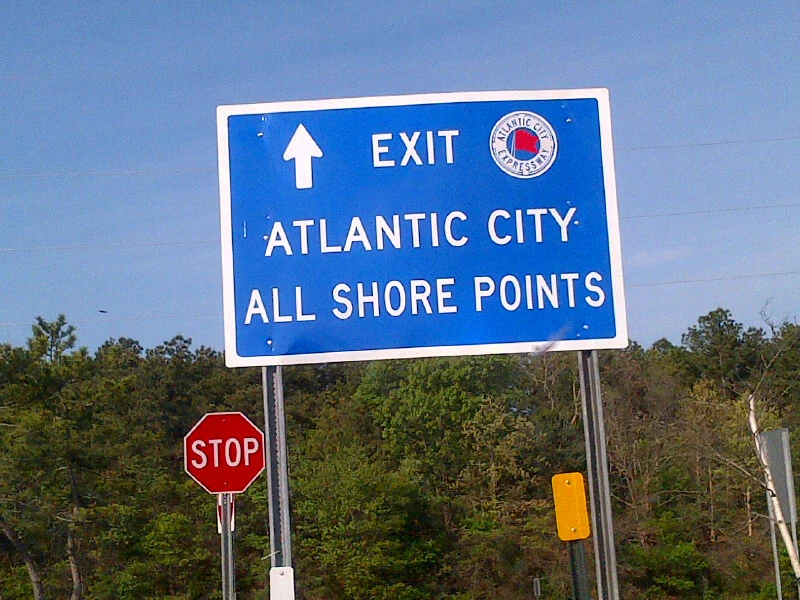If you receive a moving violation in New Jersey, points will be added to your NJ driving license and driving record. Other violations such as parking tickets, do not have points associated with them.
Once you receive 6 points or more within 3 years, the NJ MVC will impose a surcharge of $150 plus point costs.
Before you reach 6 points, you can reduce the number of points on your drivers license by 2 points when you complete the NJ defensive driving course which is available online.
Get a 2 Point Reduction
The 2 point reduction defensive driving course can also help reduce your NJ car insurance rate. The NJ mandatory law states upon completion of the 6 hour NJ defensive driving course, drivers are eligible to receive up to 10% reduction on their car insurance for 3 years. Contact your NJ auto insurance agent to confirm what percentage discount you’re eligible to receive.
Point Deduction
There are other ways that your points come off your New Jersey drivers license.
- One Year with No Violations = 3 points are removed
- Defensive Driving Course Online = 2 points are removed
For full information and a link to register for an online defensive driving course, click this link: http://www.njpoints.com/points/






Because your past driving behavior is indicative of your future behavior on the road, your driving history is a major factor in how your risk is viewed and, in turn, how your premium gets calculated. Let’s look into how your driving record affects your auto insurance rates.
DMV Points and Your Driving Record
Many states use a points system for tickets and moving violations. The points go on your driving record and stay for specified periods of time (determined by your state and by the violation). The more points you accumulate, the more likely you are to lose your driver’s license, and the higher the risk you pose to your car insurance company.
When you are considered a “high-risk driver” by your insurance provider, you are subject to higher car insurance rates because you are more likely to file a claim than someone with a better driving record.
Violations still go on your record even if you live in a state that does not use the points system. Moving violations such as speeding, reckless driving, and DUI on your record will still result in premium increases.
Learn more about how points and other infractions affect your car insurance rates by clicking this link: http://www.dmv.org






Points for NJ Speeding Tickets
Here are a few examples of the points you will receive for speeding in New Jersey:
- 1 to 14 MPH over speed limit = 2 points
- 15 to 29 MPH over speed limit = 4 points
- 30 MPH or more over speed limit = 5 points
Speeding is the leading cause of car accidents so law enforcement takes it very seriously. In New Jersey you can receive a speeding ticket from a variety of law enforcement agencies including the New Jersey State Police, a county sheriff or city police departments.
Click Here for full information: www.njpoints.com The site also includes a link to a defensive driving course which is one way that you can remove points on your license.






Applicants for a New Jersey driver’s license must answer whether they’re aware of the dangers of failing to follow traffic laws under a law signed by New Jersey Acting Gov. Kim Guadagno.
Guadagno signed the legislation on Aug. 4 in Randolph.
Full Article






03
Sep
Author: admin // Category:
Fines,
School Bus Laws,
Violations
As America’s children head back to school this September, the roadways will once again be full of school buses picking up and dropping off children. During the school year it is very important that every driver knows the laws their state sets for how to safely and legally interact with a school bus. Below is some information on New Jersey’s laws and a link on the bottom will take you to the full page:

OVERVIEW
A driver on a highway approaching or overtaking a bus used solely for the transportation of children to and from school, any school activity, or summer day camp must stop not less than 25 feet from the bus when the bus has stopped to receive or discharge any passengers. The driver may not proceed until all children have entered the bus or have alighted and reached the side of the highway, or until the flashing red lights have stopped.
Do not pass or closely approach a school bus with flashing red lights.
State law requires that motorists stop at least 25 feet away if traveling on a two-lane road, or on a multi-lane highway where lanes are only separated by lines, or on a privately maintained road.
Slow down to 10 mph if traveling on a dual highway, if on the opposite side of a safety island or a raised median.
…
Click here to find out about the full law and penalties:
www.newjerseytrafficlawcenter.com






Many people watch fun car-racing movies and enjoy the thrill they feel from them. Some of these people think it might be possible to take their own cars out and race them in order to recreate that thrill in real life. Unfortunately, unlike in the movie world, these actions can have very real and deadly consequences. Below is an outline of the penalties that one could incur if they chose to race their own car on a highway in the state of NJ:
There are two statutes in the Motor Vehicle Code that makes it illegal to race on a highway.N.J.S.A. 39:4-52 makes it a motor vehicle offense to operate a vehicle on a highway for a wager or in a race or for the purpose of making a speed record. This violation is a disorderly persons offense. It is also a disorderly persons offense to arrange, manage, encourage, assist in, hold, or attempt to hold any such race or speed race even.
FINES AND COSTS
A driver who is convicted of N.J.S.A. 39:4-52 must pay a fine of not less than $27, nor more than $102 for a first offense.
For a second or subsequent offense of N.J.S.A. 39:4-52, the driver must pay a fine of not less than $102, nor more than $202.
SUSPENSION FOR RACING
In most racing cases the Municipal Court Judge will suspend a driver’s license for 30 days. A Municipal Court judge has the option of suspending the driver’s sentence for up to 2 years. The suspension period is left up to the discretion of the court. The key issue for the court to decide is whether the suspension was willful. Upon conviction of racing on the highway the driver will be assessed five points.
Source: http://www.newjerseytrafficlawcenter.com/
The bottom line is: Racing on public streets/highways is dangerous as well as very illegal. Leave it to the professionals and the Hollywood movie teams!






12
Aug
Author: admin // Category:
Fines,
NJ Traffic Laws,
Other,
Violations
A driver may be guilty of improper passing in one of several ways. First, if the driver passes a vehicle proceeding in the opposite direction on the left rather than the right, the driver commits the violation. If the driver passes a vehicle proceeding in the same direction on the right, the driver is also guilty of improper passing, unless the other vehicle is about to make a left turn or there are at least two lanes of traffic proceeding in that direction. A driver may not drive to the left of the center of the highway to pass a vehicle move in the same direction unless the left side is clearly visible and is free of oncoming traffic far enough ahead to permit safe passing. Finally, a driver must not cross a “No Passing” solid line on the highway unless directed to do so by a traffic or police officer.
DO NOT PASS:
- On a hill or a curve, or at any time sight lines are impeded.
- At a street crossing or intersection.
- At a railroad crossing.
- On narrow bridges, or in an underpass and tunnels.
- When a sign prohibits passing or center lines restrict passing.
- When behind a vehicle that has stopped to let a pedestrian cross.
Read the full article about regulations and fines by Clicking Here






21
Jul
Author: admin // Category:
Other
08
Jul
Author: admin // Category:
News,
NJ Traffic Laws,
Violations
New Jersey Governor Chris Christie has recently passed legislation that will update the old “vague and antiquated” child car seat laws in the state. The updated law will go into effect in September, 2015.
Under New Jersey’s old law, every child under age 8 riding in a motor vehicle with seat belts must be in either a car seat or a booster seat. (School buses are exempt.)
The revised law adds additional regulations with specific age and weight limits. Among the new rules:
Birth to age 2: A child under age 2 and under 30 lbs. must be in a rear-facing car seat with a five-point harness. That means toddlers who are tall or have long legs must remain rear-facing even if their feet are pressed against the back seat of the car. Once a child reaches either age 2 or 30 lbs., the car seat can be turned around to face forward.
Ages 2 to 4: Children must remain in either a rear-facing or a forward-facing car seat with a five-point harness in the back seat of a vehicle at least until they are 4 years old or 40 lbs. Then, they can move to a booster seat.
Ages 4 to 8: Children must remain in a booster seat in the back seat of a vehicle until they are at least 8 years old or 57 inches tall. Once they reach that age or height, they can use the regular adult seat belts.
Front seats: If a vehicle doesn’t have a back seat (like a pick-up truck or a sports car), a child can ride in the front seat in a car seat or a booster seat. But the vehicle’s passenger-side airbag must be disabled or shut off if a baby or toddler is using a rear-facing car seat strapped into the front seat of the vehicle. The force of air bags can injure small children if they deploy.
Full article and more information






01
Jul
Author: admin // Category:
NJ Traffic Laws,
Other



